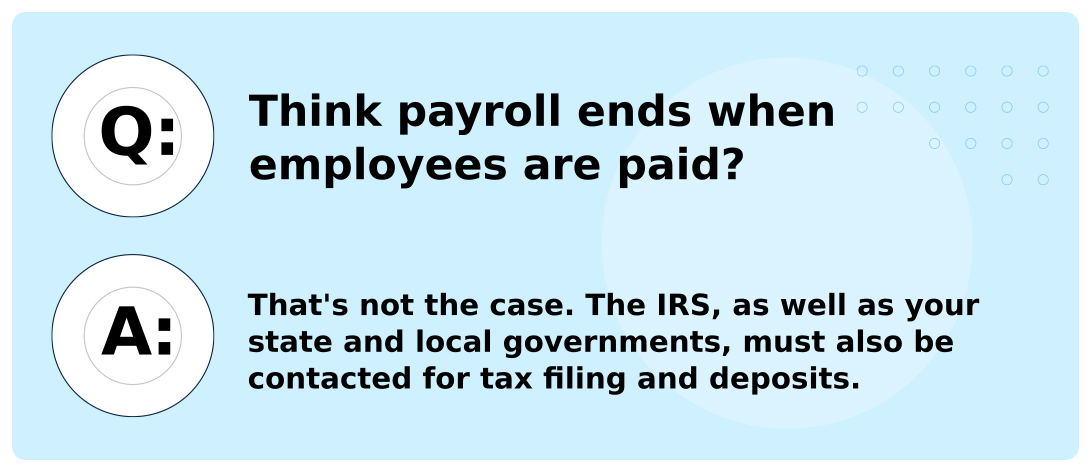
In today’s fast-paced business environment, managing payroll services in-house can be a daunting task, often perceived as time-consuming and laden with intricate details that can overwhelm even the most seasoned professionals. The complexity of handling payroll internally not only demands significant resources but also requires a deep understanding of various regulatory compliances, which can be a steep learning curve for many. This is where the invaluable role of outsourcing payroll services comes into play.
Entrusting payroll to an outside organization marks a strategic shift in how businesses manage one of their most critical functions. When you outsource payroll, you are not just delegating tasks; you are empowering trained professionals to take the helm of a complex system. This transition means the responsibility of aligning your payroll operations with the needs of your employees, the objectives of your business, and the ever-changing landscape of legal requirements no longer falls solely on your company or its executives.
Outsourcing payroll transforms a burdensome chore into an opportunity for growth and efficiency. It’s an acknowledgment that while payroll is integral to your business, managing it doesn’t have to be a labyrinthine task that devours your valuable time and resources. It’s about making a strategic choice to focus on what your business does best while letting specialized experts handle the rest.
In the following sections, we will delve into the myriad benefits of using payroll services. From the convenience and functionality they offer to small businesses, to the accuracy and compliance they ensure – outsourcing payroll isn’t just a logistical decision; it’s a strategic move towards a more streamlined, efficient, and focused business model.
What Are The Main Benefits of Using a Payroll Service?
There are a number of benefits of using payroll services:
Convenience
A small business will just submit hours, deductions, and salaries to the outsourced payroll provider and they take care of the rest.
Functionality
Most payroll services are able to expand capabilities outside of an internal team like giving the business access to direct deposits and employee retirement plans. The majority of payroll services will also prepare W2 forms for their clients, calculate employee tax obligations, and provide management reports.
Accuracy
Because payroll services specialize in payroll, they have quality assurance processes that keep payroll accurate and on time.
Compliance
Payroll is subject to a wide range of state and federal legal requirements that are constantly changing from state to state. An outsourced payroll company can save you money on legal fees and ensure compliance is handled by a business that specializes in understanding these issues.
What Are The Steps of Processing Payroll?
Processing payroll is a process that is often underestimated by small business owners and CEOs alike. The benefit of using payroll services is the time saved and the potential for mistakes.
There are a lot of steps and details involved in executing payroll accurately, on time, and in compliance:
Tracking time
Keeping track of the time your employees spend on the job is essential for running payroll. This includes regular hours worked, time off, and possible overtime hours. Retaining employee hours is an important part of ensuring you are paying your employees the right amount.
Calculating employee’s gross wages
Depending on the nature of your business, you may have salaried employees, hourly employees, or both. The gross wage of each employee can be calculated once you know the number of hours they worked.
- To calculate your salaried employees’ gross wages, divide the number of pay periods in the year by their annual salary.
- To calculate your hourly employees’ gross wages, multiply their rate of pay by the number of hours worked in the pay period.
If an employee has additional pay sources, including tips, commissions, or bonuses, you must include them in payrolls.
Subtracting taxes and other deductions
Withholding taxes and other deductions from employees’ gross wages is one of the most important and challenging parts of payroll.
Identify the employee’s pre-tax deductions first. In that case, deduct them from an employee’s gross pay before calculating taxes.
Calculating the employee’s withholding is the next step. You must deduct the following taxes from an employee’s pay:
- Federal income tax
- Social Security tax
- Medicare tax
- State and local income taxes
- State-specific taxes
Employers are also responsible for paying employee taxes. Social Security, Medicare, federal unemployment taxes, and state unemployment taxes are all included in employer taxes.
In the case of an employee with any post-tax deductions, withhold those after the employee’s taxes have been calculated.
Paying employees
The employee’s net pay is determined after subtracting taxes and other deductions from their gross wages. Make sure your information and calculations are accurate before paying employees. Employees will be paid as soon as payroll has been approved. You might pay employees via Direct deposit, Paychecks, Mobile wallet, Pay cards, and Cash.
Your employees should also receive a paper or digital pay stubs when they are paid. As a result, employees will be able to view and keep track of their payroll information.
Filing and depositing taxes

Think payroll ends when employees are paid? That’s not the case. The IRS, as well as your state and local governments, must also be contacted for tax filing and deposits.
The IRS requires you to deposit your federal income taxes, Social Security taxes, and Medicare taxes. Deposits must be made monthly or semi-weekly, depending on your deposit schedule. Employers are required to file Form 941, Employer’s Quarterly Federal Tax Return, or Form 944, Employer’s Annual Federal Tax Return, in order to report the taxes.
Depending on the tax agencies’ rules, deposit state and local taxes. In addition, deposit and file employer-only taxes, such as the federal unemployment tax and the state unemployment tax.
Keeping important records and information safe
It is required by the Fair Lab or Standards Act (FLSA) and the Internal Revenue Service (IRS) that you keep detailed records for a few years.
- Timecards and other records on which wage computations are based should be kept for at least 2 years.
- Payroll records should be kept for at least 3 years
- Employment taxes should be kept for at least 4 years
Each year, you must keep detailed records not only to satisfy FLSA and IRS requirements but also to complete Form W-2, Wage, and Tax Statement.
Not only can payroll be burdensome on an internal team, but there is also no margin for error in payroll processing services. That is why we recommend investing in not only payroll software, but a payroll service to go with it.
Get All The Benefits of Using Payroll Services With Milestone
At Milestone, our focus is on helping our clients and meeting their needs, especially when it comes to outsourcing payroll services. Get in touch with Milestone today to find out more about what we can do for you.
Related Content

What Payroll Company Is The Best?
There are many excellent payroll service companies in the marketplace. They all offer different pros and cons, and the best ...

What Are The Names Of Payroll Companies?
There are tons of popular payroll service companies, from ADP, to Gusto, to Rain. The best way to find a ...

What Are The Different Types Of Payroll Systems?
The two different types of payroll systems are payroll processors and payroll softwares. A payroll processor is a system where ...
Stay in the know